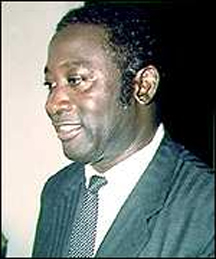ABIDJAN, (Reuters) – France joined the United Nations yesterday in rejecting a demand by Laurent Gbagbo to quit Ivory Coast and stepped up calls for him to stand down as president after a disputed poll or face sanctions.
The world’s top cocoa grower is locked in a dispute over a Nov. 28 presidential vote that both Gbagbo and rival Alassane Ouattara say they won. Ouattara’s claim is backed by numerous foreign governments and the U.N. Security Council.
Gbagbo’s government on Saturday issued a demand for the United Nations and France to withdraw their forces from the country, but the world body made clear its 10,000 troops would remain and Paris said its 900-plus forces would stay too.

“That would make no sense at all either for UNOCI (UN force) or France,” Foreign Minister Michele Alliot-Marie said in an interview with French media TV5, RFI and Le Monde.
“If they are directly attacked … there is the right of legitimate defence,” she said, while stressing there were no plans to become directly involved in fighting between pro-Gbagbo and pro-Ouattara forces which last week waged gun battles.
Alliot-Marie reaffirmed that Gbagbo would face international sanctions if he did not step down. French President Nicholas Sarkozy has said EU measures such as travel bans and asset freezes on him and his entourage could be launched within days.
Gbagbo controls the army and key state institutions and his camp has rejected calls for him to quit as outside meddling.
His newly-named youth minister, Charles Ble Goude, told a rally of the fervently pro-Gbagbo Young Patriots movement that the sovereignty of the West African nation was at stake.
“Be ready for the battle. When you go home, tell your brother, your sister, your husband, that they should prepare to liberate their country,” he told the rally in an Abidjan suburb close to the French military base.





